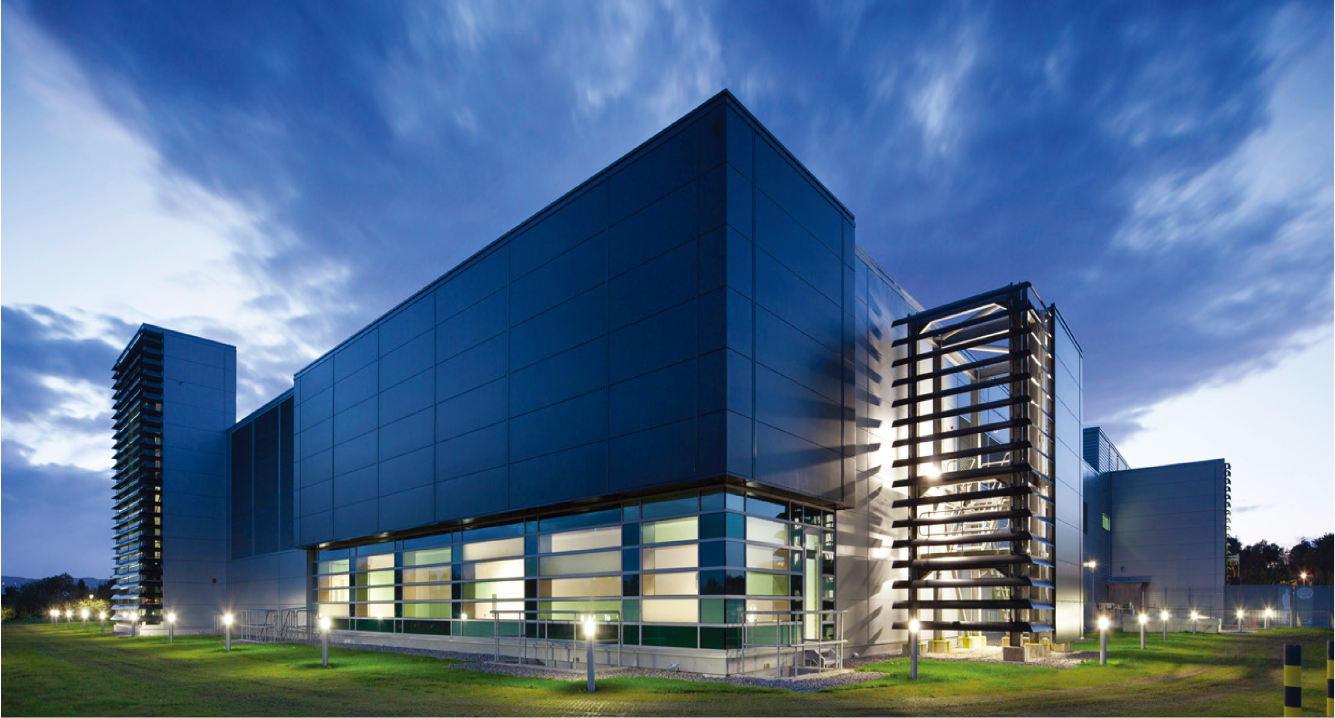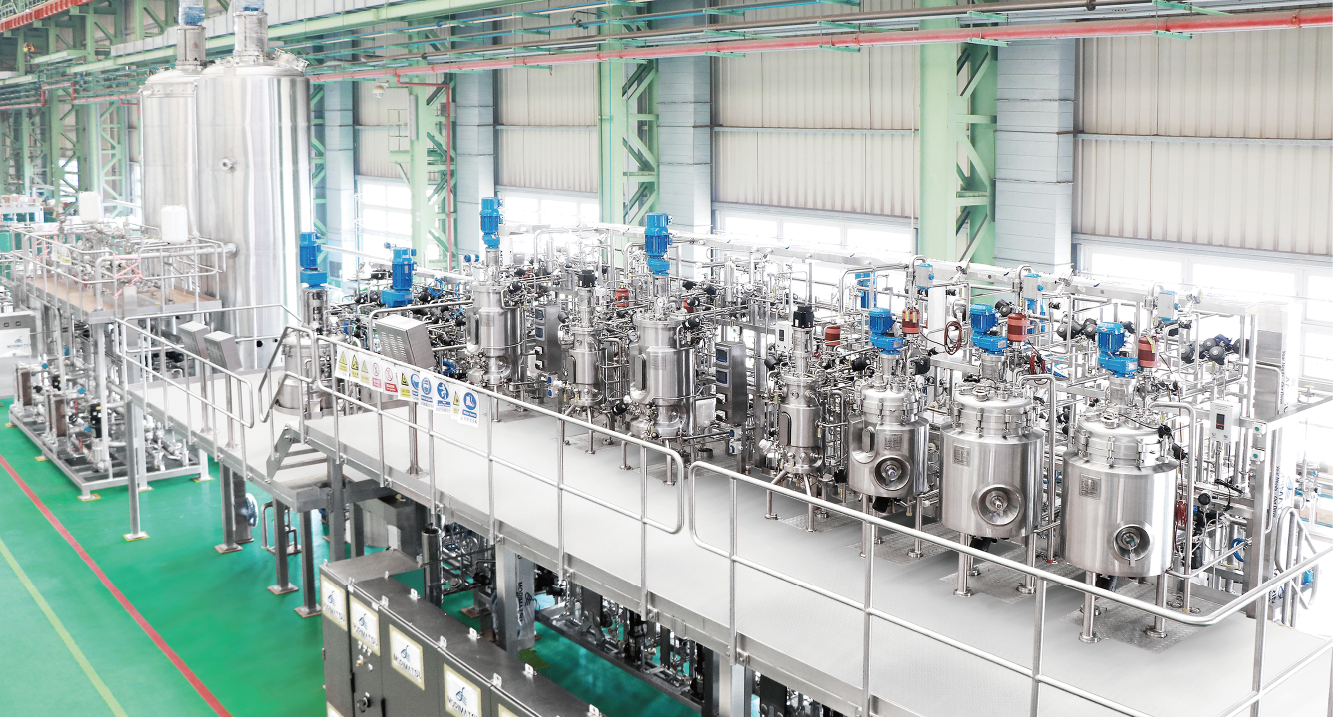
Search

The following article is written by Shao Lizhu for Pharmaceutical Process and Equipment
Digitalization, intelligence, sustainability and personalized medicine are important development trends of pharmaceutical industry that will bring valuable new opportunities for the pharmaceutical equipment industry. Mr. Tang Weihua, Executive Director and Senior Vice President of Morimatsu Group and Morimatsu International Holding Co., Ltd., and CEO of Morimatsu LifeSciences shared his insights into the important development trends of biopharmaceutical industry, technology change and enterprise growth as well as his vision for future plant in the interview.
Now more and more pharmaceutical enterprises are implementing advanced technologies in bio-pharmaceuticals such as digitalization, big data, AI and modularization in the hope of exploring new world in the field. As a partner for top companies in the pharmaceutical industry, Morimatsu LifeSciences keeps a close eye on the global technology trends of the pharmaceutical industry, and is committed to help pharmaceutical enterprises stay in the forefront of technology innovation with its extensive experience and expertise in the pharmaceutical industry.

Mr. Tang Weihua, Executive Director and Senior Vice President of Morimatsu Group and Morimatsu International Holding Co., Ltd., and CEO of Morimatsu LifeSciences
Great potential for pharmaceuticals digitalization
At present, more and more pharmaceutical enterprises in the world are embracing intelligent manufacturing. How is the application of intelligent manufacturing in the pharmaceutical industry? According to an analysis result of McKinsey, many pharmaceutical enterprises have achieved a certain level of maturity in digitalization but still have space for improvement. The data shows that only slightly over 50% pharmaceutical enterprises have integrated digital transformation and data analysis into its strategy to address challenges around efficiency increase, cost reduction and quality improvement.
Thanks to the policy support and the practice of enterprises, more and more enterprises in China have realized the importance of digitalization. However, only a few pharmaceutical enterprises in China achieved process automation to some degree, and the rest of them are still at the automation phase of individual equipment control. Tang Weihua stressed that the digitalization market has a bright future where the implementation of digital application scenarios play a crucial role. However, it involves a long and complex process from the big model development to the implementation of application scenarios. Since the big model training requires a large amount of data, one of the important issues that the industry needs to address is how to collect the industrial data from pharmaceutical enterprises and ensure the reliability and security of these data, he explained. Even after the big model platform is established, the gradual implementation of application scenarios is also a complex process and requires the joint efforts of industry stakeholders.
Morimatsu started thinking about and investing in ways to make pharmaceutical enterprises realize the real value of digitalization more than a decade ago. Tang Weihua said, “The purpose of digitalization is to solve problems rather than follow suit. In terms of implementing digitalization, Morimatsu thinks about how to effectively combine digitalization with R&D, process, control, production, operation and maintenance to help bio-pharmaceutical plants achieve lean building, production and operation.”
The visual predictive operation and maintenance services of Morimatsu will remind the user to carry out timely inspection before any potential equipment failure helping them reduce cost loss due to shutdown. In addition, Morimatsu's digital service offerings, such as data analytics and forecasting, virtual factory, and data asset management, are designed to enhance the efficiency of scheduling, reduce turnaround losses, and improve the efficiency of design, selection, and assembly through the management and analysis of data assets.

Digital services
Demand increase for modular plant building
The demand for plug and play modular plant building around the world keeps growing since the initiation of the concept and integrated structure for a variety of advantages such as faster delivery, flexible solution, and higher cost effectiveness. According to Tang Weihua, there are two reasons for this demand increase. On one hand, the labor cost in developed countries located in Western Europe and America is rather high; on the other hand, workers in some undeveloped areas lack necessary experience and technical resources. What’s more, modular plant building may meet the requirements of pharmaceutical enterprises for rapid product launch and flexible capacity expansion.
Take antibody-drug conjugates (ADC) drugs for example. Rapid product launch helps seize opportunities among fierce market competition where modular plant building is sure to play an important role for its characteristics of fast, flexible implementation and cost saving. For cell and gene therapy, their characteristics of small production scale and customization requires taking into account of multiple variables such as volume and capacity expansion during facility project planning. The plug and play and standard small modular design concept may well satisfy the demand for flexible extensibility of such drugs. In addition, production capacity may be increased rapidly by adding more standard modules.

Modular plant building
Morimatsu’s modular factories can save the construction time of new factories and significantly reduce the risk of the construction process, while achieving the overall off-site relocation of the building. Tang Weihua pointed out that it generally takes 36 to 48 months to build a plant abroad, while the construction time of the modular plant building provided by Morimatsu is only 18 to 24 months, and the time can even be shortened to about 10 months if the plant construction work is done in China.
Compromising of modular factory, core equipment, process design and value-added services, the Digital Intelligent Overall Factory Solution of Morimatsu can help pharmaceutical enterprises rapidly realize process transfer, process scale-up and industrialized production. “Our advantages lie in active participation from the R&D stage and helping enterprises rapidly advance from R&D to industrial production with our comprehensive equipment, process and engineering capability.” Tang Weihua emphasized, “Once entrusted the project with Morimatsu, the clients may feel at ease with the cost, quality and timeline for which we can provide them with guarantee.”
Future plant reflects new trend
The future plant is an embodiment of the industry development trend. While envisioning the future plant, Tang Weihua believes biopharmaceutical production will achieve digitalization and intelligence in the future. The future plant will combine big data analytics, artificial intelligence, and simulation with higher levels of automation and robotics. Biopharmaceutical plants with such a high level of integration will promote the application of innovative technologies and flexible plant designs to a new level.
By applying AI in the production of drugs, enterprises may optimize processes and integrate big data into intelligent data; the introduction of virtual systems enables end-to-end data management throughout the product lifecycle; with digital twins, it is possible to simulate the recipes, equipment and consumables required for a particular manufacturing process, the various modules within the plant and the processes and activities of the operators. These will improve and accelerate the development of processes and systems for full product lifecycle management.
In addition, personalized medicine will become a very important segment in the future. Tang Weihua said that personalized medicine will change the existing manufacturing model. Small-scale production will lead to the development of "plug and play" modular design. Of course, the increasing use of innovative technologies in pharmaceutical plants does not mean that people are not involved. In the future, people will still be the core of the plant, technology will make people more powerful, and human-machine collaboration will make better use of data, all of which will further boost production efficiency and product quality. The future plant will be a multi-functional facility based on lean management and with a high degree of technological flexibility that will allow for multi-product production and minimize the risk of cross-contamination. At the same time it may also reduce production changeover times considerably and enable the company to respond quickly to new market demands.

Process system
Create a pharmaceutical upstream and downstream MVP
Of course, some innovative technologies have already begun to be applied in the pharmaceutical industry, but most of them are still in the initial stage, and many applications are still a vision for the future. Morimatsu hopes to work hand in hand with the industry, persist in exploration and innovation, and work together to realize this vision. “We will always pay attention to the market development trend, optimize the design, improve the process capability, and turn customers' ideas into reality through smarter and more sustainable total factory solutions," said Tang Weihua, “We will also place higher importance on resource investment and improve our R&D, project management and product development capabilities, so as to become the M.V.P. (core equipment + process system and modular plant + value-added services) of the industry's value chain. At the same time we will strive to play a leading role in helping the high-quality development of the industry and enhancing the global recognition for products made in China.
About Morimatsu LifeSciences
Morimatsu LifeSciences is a subsidiary of Morimatsu International Holdings Limited (Morimatsu International, stock code: 2155.HK), covering pharmaceutical, biopharmaceutical, FMCG, cosmetics, electronic chemicals and other industries, provides clients with "core equipment/Machinery + Value added + digitalized intelligence overall Plant Solutions and Service" (" MVP Solutions & Service"), mainly including Shanghai Morimatsu Pharmaceutical Equipment Engineering Co., LTD., Morimatsu (Suzhou) LifeSciences Co., LTD., Shanghai Morimatsu Biotechnology Co., LTD., Shanghai Mori-Biounion Technology Co.,Ltd. and Pharmadule Morimatsu AB., Morimatsu Pharmadule (Singapore) Private Limited as well as their subsidiaries. Morimatsu LifeSciences is focusing on the research and development, manufacturing, and sales of products in related fields.
From the start in Japan, Morimatsu has grown and today is a diversified multinational corporation with vast experience and professional know-how in fields of process engineering equipment as well as modular engineering solutions. Our company has established long-term collaboration relationships with numerous well-known global corporations. We have companies in Sweden, Italy, US, India, Singapore, Malaysia, together with the large scale operation and manufacturing facilities in Asia. So far, Morimatsu has delivered projects to more than 40 countries/regions in the world, established an excellent industrial reputation in the process.
Forward-Looking Statements
The information in this press release may include some forward-looking statements. Such statements are essentially susceptible to considerable risks and uncertainties. The use of "predicted", "believed", "forecast", "planned" and/or other similar words/phrases in all statements related to our company is to indicate that the statements are forward-looking ones. Our Company undertakes no obligation to constantly revise such predicted statements.
Forward-looking statements are based on our Company management's current perspectives, assumptions, expectations, estimations, predictions and understanding of future affairs at the time of the making of such statements. Such statements are not guarantees of future development and are susceptible to the impact of risks, uncertainties and other factors; some are beyond the control of our Company and unpredictable. Subject to the influence of future changes and development in our business, competition environment, political, economic, legal and social conditions, the actual outcomes may differ significantly from the information contained in the forward-looking statements.